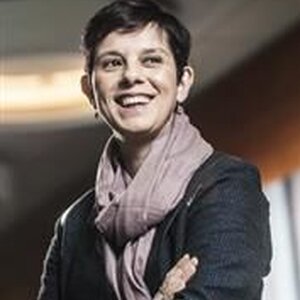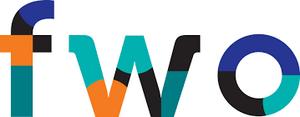'Too Early' is a digital platform that brings together reliable and relevant information on preterm birth. The platform acts as a compass to show parents of (former) premature babies the way to appropriate care and support, both by healthcare providers and the environment. Through testimonials and experiences of fellow sufferers, this digital tool aims to connect parents.
TE VROEG: a platform to support parents with premature babies
The development of the digital platform is based on a user-centred design (UCD) model, characterised with the active involvement of the users, i.e. the parents (co-creation) and a multidisciplinary approach. The UCD model is an iterative design process, consisting of four phases (understanding, defining, design and evaluation) that are run several times in order to refine the platform based on new insights. Because of the iterative approach of the UCD model, evaluation with the target audience is required at each step in terms of functionalities, flow, design and content.
The co-creative and network approach contributes to a successful and sustainable implementation of this digital platform, so that the platform ‘Te Vroeg’ can grow into the reference platform for prematurity in Flanders/Belgium.

Preterm birth refers to all births that occur before 37 weeks of gestation and represents 14.9 million of all live birth worldwide every year. In Belgium, around 8% of all babies are born prematurely. Preterm birth is the leading cause of perinatal morbidity and mortality, often leading to an admission on a neonatal (intensive) care unit. For parents, it means the start of a difficult, emotional and stressful period. Research showed that parents search for online information about prematurity, advice and social and peer-to-peer support. However, healthcare professionals are concerned about the quality of online information. Hence, there is a need for qualitative, reliable and evidence-based digital tools for parents with a (ex-)premature baby. However, digital solutions are lacking within neonatal care. Information on prematurity is also fragmented, making it difficult for parents to gain insight into available care and support. Therefore, a digital platform 'Te Vroeg' is developed to support parents of (ex-)premature babies, to bundle information on preterm birth and to show parents the way to appropriate care and support. An additional goal of the project is to develop an expertise network on prematurity in Flanders/Belgium together with parents and various organisations and stakeholders.
Partners
The project was submitted with VVOC and Cokoen as partners. Furthermore, several organisations and stakeholders are involved in the advisory group of the Te Vroeg platform. More info: https://www.tevroeg.be/contact
Get to know the researchers
Want to know more about this project?
ACTIVE-AGE@HOME: A HOME-BASED FUNCTIONAL EXERCISE PROGRAM FOR COMMUNITY-DWELLING FRAIL OLDER ADULTS
A lot of people experience acute or chronic conditions that reduce quality of life and self-reliance in later life. Physical activity can slow down or even reverse this vulnerability. In addition, it also promotes mental health and increases the chances of socialising. Unfortunately, due to many personal and environmental barriers, vulnerable people get little exercise.
In this four-year project, we want to investigate the effectiveness and cost-effectiveness of a functional exercise programme for frail 70-plussers living at home.
The functional training programme ACTIVE-AGE@home developed by the Arteveldehogeschool trains vulnerable people in their own home environment. The programme is made up of simple and functional exercises linked to activities of daily living such as climbing stairs, getting up from a chair and moving objects around the room. Flanking the physical training, each participant's personal goals are also determined and a strong link is made to - for the participant - meaningful / meaningful activities.
In this four-year project, we want to examine the effectiveness and cost-effectiveness of the training programme in two groups: one group is supervised by professionals for 24 weeks. Another group is supervised for 24 weeks by trained volunteers/caregivers.
These two conditions will be compared with current standard care for frail people living at home through a pragmatic randomised controlled trial. A total of 192 frail over-70s will be recruited in this study. Each participant will receive pre-, post- and follow-up measurement of both physical, mental and social parameters.
The ultimate goal of this research project is to improve the quality of life of the frail over-70s.
Our partners
VUB, UZ Brussel, UAntwerpen, Arteveldehogeschool, UGent
Financed by Scientific Research Fund - Flanders (Fonds Wetenschappelijk Onderzoek Vlaanderen - FWO)








